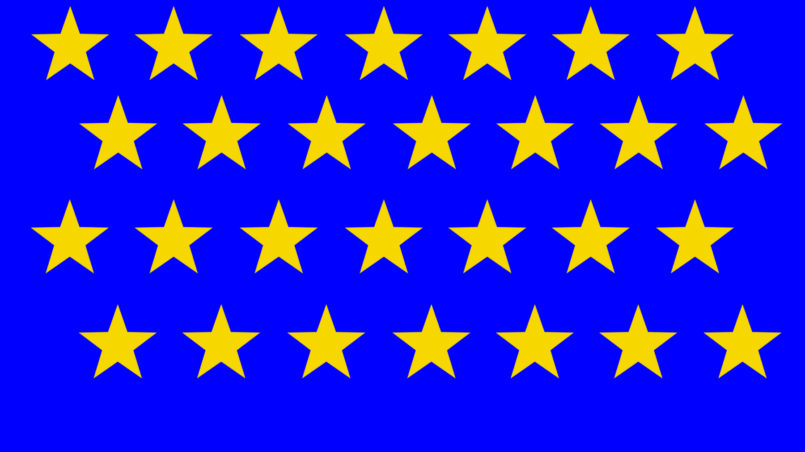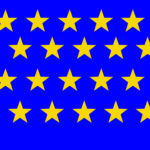Europe Re-thought! Provincial Thinking on a Multinational Level

When we look at Europe, we see a large number of states with incredibly long histories. From Sweden to Greece, from Hungary to Portugal. Countries with a long and individual past. Some are nowhere near as large as they were previously. Others have grown over the course of time. Although we formed a union on our part of the planet, our continent has few similarities to North America as is also the case with the EU and the USA.
Europe is not the separation of colonies from the mother country and also not an attempted genocide of the indigenous peoples but rather was a constant competitive struggle of the peoples for resources, the stage for brutal wars – and in two thousand years there was hardly a longer period of peace. Only after the most unbelievable crimes against humanity and the most extensive mass murder ever, ensuing from national socialism, did the realisation emerge that we can and must live together without exterminating each other in the process.
The existence of the European Union was not an issue and was not the subject of discussion as long as there were no serious crises within the community. However, when the economic crisis shook the world in 2008 and, as a result, the crisis in Greece broke out, the first cracks appeared. Nationalism once again became popular. The waves of refugees from the south a few years later led to a rapid increase in anti-EU sentiments in many states and extremely national-minded movements emerged.
At the latest at this time, was it evident that the entire construction for a united Europe is very fragile.
Hungary, Poland, Greece, Germany, Austria, Spain and Great Britain: everywhere a growing number of the population began to ask themselves what benefits they were gaining from membership of the EU and how much it restricted their sovereignty. Resolutions of the Commission, Parliament and even the Council were often ignored and not implemented.
There is hope. But this would mean that Europe would have to be re-thought. The countries cannot form a union; that is an illusion since the states are anxious to maintain their autonomy.
This country chose a form of rule which creates a balance between the small parts and the whole. A system in which the local sub-areas do not feel ignored and in which the whole is not lost sight of.
Europe’s states also have a “Kantönligeist“- a provincial way of thinking. They are built upon the national heritage and attempt to preserve and defend specific national interests. They give up competences only reluctantly. In the case of danger and when feeling under threat, many states isolate themselves. “Dear Saint Florian, leave my house alone and set the other on fire!” is a creed of all states – from some more and from others less.
- Federalism: Europe as a confederation with a strong emphasis on the autonomy of its national states and their participation in all phases of political decision-making.
- Parallel resolutions: Decision-making, as a matter of principle and without exception, should follow in two phases. Respectively, the method which is valid for the entire European Confederation and that which includes every individual state is to be applied and only when a majority is achieved in both cases will a valid decision arise.
- More direct democracy: By means of a European Confederation initiative, which becomes an obligatory European-wide referendum (as well as a referendum per state) in the case of sufficient support, citizens can have a direct influence on the activities of the individual parliaments, including the “pan-parliament”, as well as, via the parliaments, on the further development of the European Confederation.
- Consociationalism: The basic principle is that as many parts of the population as possible are constantly involved in the political process and due consideration is taken of them.
By including all fractions who were successful in the elections in relation to the strength of their mandate in the “college” (until now: Commission), every movement will feel sufficiently represented. The nations’ council, with all individual states represented by their state leaders (one state, one vote), is also decisive. A decision will only be made when both councils decide in the same manner by a majority.
The European Confederation parliament and the national parliaments are on the next level. If a question has to be decided by the people’s representatives, the European Parliament and the majority of the national parliaments have to come to a decision. However, if a question concerns the European Confederation as a whole such that it would determine the future path of the federation of states, it can be decided by a majority of the entire population of Europe and a majority of referendums in all states together.
In any case, the harmony in both Europe as a whole and in its national states is decisive as to whether or not something changes in a certain direction.
As a result, Europe would only change to the extent that we all want it to, regardless of how cosmopolitan and multi-cultural or border-related and wary we are towards foreigners. Regardless of how global or national we are. Everyone has to be considered. Then neither those who wish for more Europe nor those who think that we should first think about the people in our own country would drift apart.
We would be one Europe. One confederation of states which would offer people solidarity, employment, sufficient remuneration and security – not division, fear of the future and mass unemployment. An entity that guarantees peace but also the preservation of national characteristics and interests.
The European Confederation.
Credits
| Image | Title | Author | License |
|---|---|---|---|
 |
Kantönligeist | Patryk Kopaczynski | CC BY-SA 4.0 |
